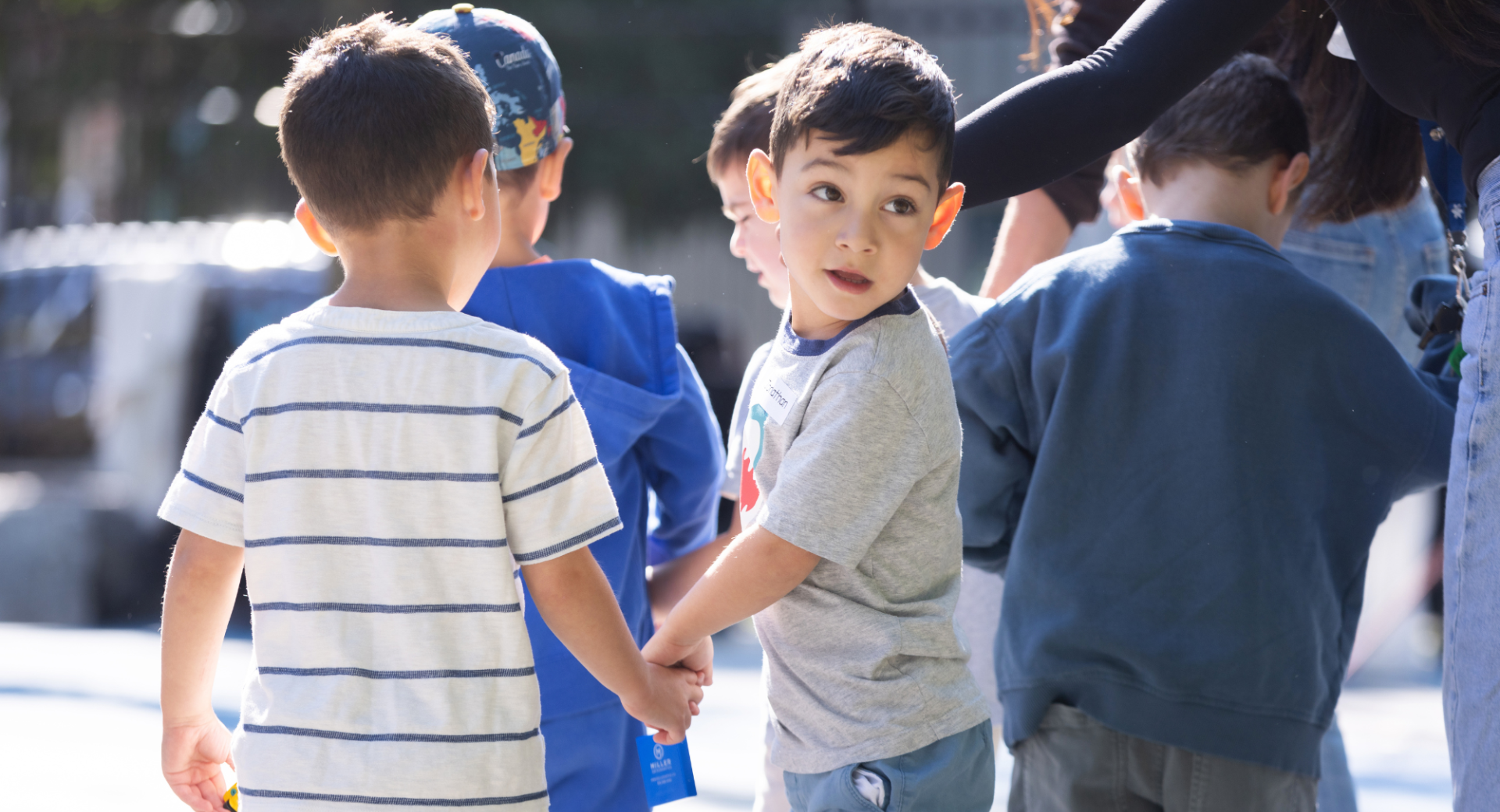
Since 2018, I've had the privilege of teaching in Bialik's Senior Division. During my maternity leave with my daughter, Rae, I was presented with the opportunity to step into a temporary administrative role. For a Senior Division English teacher, this meant much more than just a change in title — it meant becoming immersed in an entirely new world.
Suddenly, I found myself navigating Kindergarten routines, learning the nuances of daily pick-up and drop-off, understanding Kindergarten pedagogy and learning the dynamics of a brand-new team. Add to that a major flood in the building over the summer that forced the Kindergarten classes to relocate, and it quickly became clear that the road ahead would be anything but predictable.
Needless to say, I was nervous. But I soon realized that the only way forward was to embrace the discomfort. I kept in mind that change, while often difficult, inevitably leads to growth.
So, I leaned into the unknown, absorbed as much as I could and learned on the fly. I sat with the discomfort, choosing to grow through it rather than retreat from it. I focused on establishing meaningful relationships, which allowed me to grow tremendously amidst the many challenges.
I sought feedback from colleagues with more experience in early childhood education. I asked questions and observed intently. I paid attention to the unspoken ways teams communicate and collaborate. And perhaps most importantly, I learned that leading from a place of vulnerability is not a weakness — it’s a strength. It allows others to meet you with empathy and partnership.
This experience powerfully reinforced for me that true growth begins at the edge of our comfort zone. Leaning into discomfort opens the door to transformation — both personal and professional.
And this applies to our students as well –– those beginning JK, starting the dual curriculum in Grade 1, or being introduced to the rotary system in Grade 6 –– I know those changes and transitions can be scary. Yet, I also know that kids adjust and rise to the raised bar. As educators and parents, it can be tough to watch the children we care about wrestle with discomfort. Our instinct is to protect, to smooth the path ahead. But sometimes the most supportive thing we can do is help them lean into that discomfort, knowing that on the other side is resilience, confidence and growth.
We can remind them that fear and uncertainty are not signs that something is wrong — they are signs that something meaningful is happening. We can normalize the struggle that often comes with trying something new. And most of all, we can hold space for their discomfort without rushing to fix it, knowing that it's by working through those moments that they build the very skills they'll need for the rest of their lives.
My recent journey has made me re-examine how I view change, both as an educator and for the students in my care. As much as we tend to resist change, it is often the most unfamiliar experiences that help us grow the most. Rather than shielding our children from discomfort, let’s support them through it. Because when we do, we give them the chance to discover their strength and unlock their potential.
